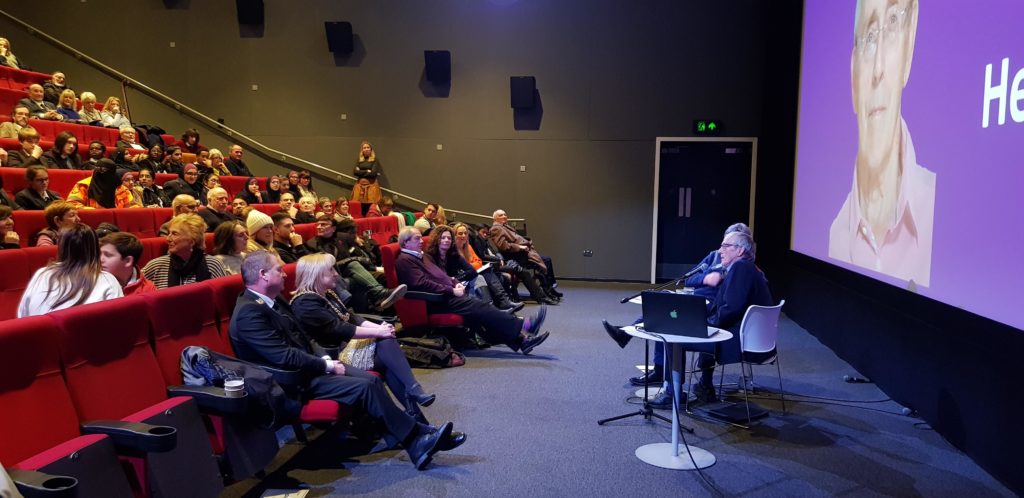The story of how thousands of documents were saved from destruction by the Nazis in the Warsaw Ghetto will be shown for the first time.
On Sunday January 27, at Manchester Central Library the UK premiere of ‘Who Will Write Our History’ will take place, telling the story of how thousands of documents were preserved for future generations by a small number of brave inhabitants of the Warsas Ghetto. The Oyneg Shabes archive, also known as the Ringelblum Archive, would survive the war and become a key part in our understanding of life in Warsaw for Jews living under Nazi occupation.
There will also be performances by young people during the afternoon in the library exploring this year’s HMD theme – ‘Torn From Home’. This theme was chosen to encourage members of the public to picture how their lives would change if uprooted from the place which they call ‘home’. Earlier in the week Manchester schoolchildren were invited to HOME to hear the story of Holocaust survivor Danny Herman, who when he was only four years old fled from Germany to the UK just before the outbreak of the Second World War.
His story is an example of how refugees can start a new life after fleeing the most horrific of circumstances, and the compassion shown to them by a welcoming country when they were most in need. Also, as part of a week of commemoration school children have been creating artwork with artist Caroline Slifkin in response to the theme, which will be on display on Sunday in the Library. Lord Mayor of Manchester, Councillor June Hitchen, said: “The atrocities committed during the Holocaust, and subsequent genocides can never, and should never be forgotten.
“We are duty bound to remember the millions of people who were killed to ensure one of the darkest periods in human history will never be repeated.
“The events of the Holocaust will soon slip from living memory but through events such as this we can ensure generations to come will learn, contemplate, and never forget such a terrible atrocity. Holocaust Memorial Day: Statement of Commitment
- We recognise that the Holocaust shook the foundations of modern civilisation. Its unprecedented character and horror will always hold universal meaning.
- We believe that the Holocaust must have a permanent place in our nation’s collective memory. We honour the survivors still with us, and reaffirm our shared goals of mutual understanding and justice.
- We must make sure that future generations understand the causes of the Holocaust and reflect upon its consequences. We vow to remember the victims of Nazi persecutions and of all genocide.
- We value the sacrifices of those who have risked their lives to protect or rescue victims as a touchstone of the human capacity for good in the face of evil.
- We recognise that humanity is still scarred by the belief that race or religion or disability or sexuality makes people’s lives worth less than others. Genocide, anti-Semitism, racism, xenophobia, Islamophobia and discrimination still continue. We have a shared responsibility to fight theses evils.
- We pledge to strengthen our efforts to promote education and research about the Holocaust and other genocides. We will do our utmost to make sure that the lessons of such events are fully learnt.
- We will continue to encourage Holocaust remembrance by holding an annual UK Holocaust Memorial Day. We condemn the evils of prejudice, discrimination and racism. We value a free, tolerant and democratic society.

